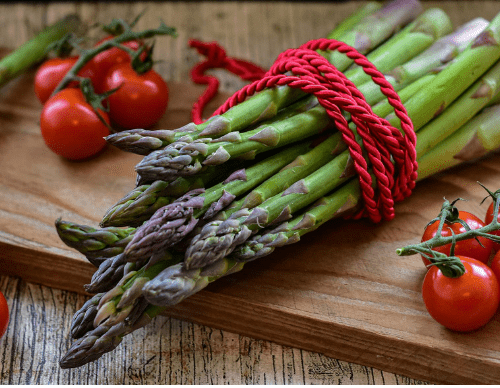Are you thinking of switching over to a vegan diet but are facing the question can vegan build muscle? The answer is a resounding yes! Veganism can definitely help you build muscle. And there are a lot of vegan bodybuilders out there who have already answered this question for us.
So, can vegan build muscle? In fact, veganism can be even better for bodybuilding than a meat-based diet, since vegan meals are typically higher in protein and lower in unhealthy fats. This means that you can get all the benefits of muscle growth without any of the drawbacks. Of course, as with any diet, you need to make sure that you’re getting enough calories and protein to support your muscle-building goals. But once you’ve got that figured out, veganism can be a great way to achieve your fitness goals.
There are a few things you need to know about vegan bodybuilding – first of all, it’s not as difficult as you might think. And secondly, there are plenty of ways to get the protein you need without eating meat or dairy. In fact, many professional athletes and bodybuilders are now following a vegan diet and achieving great results. So if you’re looking for a vegan way to bulk up, don’t worry – you’ve got plenty of options! There are plenty of high-protein vegan foods out there that can help you reach your muscle-building goals. Just take a look at some of these vegan bodybuilders for proof that veganism can work wonders for your physique.

Table of Contents
5 Reasons Why A Vegan Diet Isn’t Helping You Gain Muscle Mass.
- Not Eating Enough Calories.
- Not Consuming Enough Protein.
- Excess Stress.
- Not Getting Enough Rest.
- Not Eating Adequate Amounts of Healthy Fat.
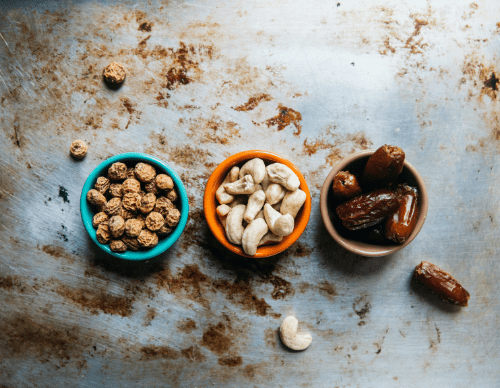
Vegan Foods And Their Benefits
| Food | Benefit |
| Oats | Oatmeal and oats provide a good amount of protein per serving, as well as some beneficial fiber. |
| Vegan dark chocolate | High in antioxidants, vegan dark chocolate contains some essential vitamins and minerals, such as calcium, iron, potassium, magnesium, and vitamins A, B, and E. |
| Nuts and nut butter | They can provide a good source of protein when combined with other complementary proteins. Plus, they’re a good source of healthy fats. |
| Whole grains and cereals | These can provide a good source of protein, B vitamins, and fiber. |
| Soy products | Examples include tofu, tempeh, edamame, soy milk, and soy protein powder. |
| Hemp, flax, sunflower, and chia seeds | They contain a good amount of protein and omega-3s. |
| Beans and legumes. | These provide a good source of protein and fiber. |
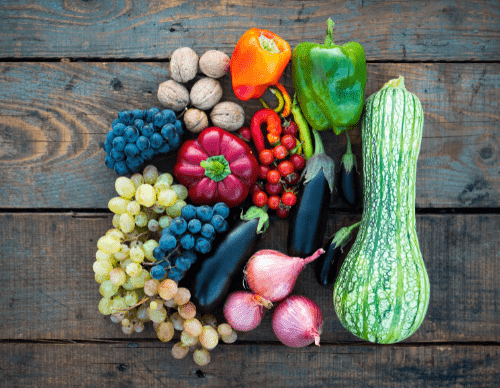
All About Vegan Protein Sources
Veganism And Muscle Building
Vegan diets are also rich in iron which is a great bonus because iron increases erythropoiesis (red blood cells production) meaning more oxygen-rich blood is transported throughout the body allowing vegan athletes to train harder and lift heavier weights compared to non-vegan counterparts.
In addition, vegan diets offer many benefits such as improved digestion as well as increased energy levels due to their nutrient-dense composition as well as lower cholesterol levels due to the restriction of animal fat sources. In general, vegan diets are probably the healthiest thing one can adopt.
Even vegan athletes who train consistently and lift heavy weights can eat vegan foods with high cholesterol levels due to their minimal saturated fat content, vegan bodybuilders can still benefit from vegan diets without having to worry about cardiovascular problems down the road. Vegan diets on average contain less than 1% of daily saturated fat intake which is great for people who want to build muscle while keeping their heart-healthy at the same time.
What Are Some Protein Sources For Vegans
Protein is an essential macronutrient and an important source of energy that we consume in food, and it’s made up of amino acids: the building blocks of life. These amino acids are the building blocks of all living cells, including muscle cells.
Vegans get protein by eating sources like beans, nuts soy products, lentils, and other legumes.
Get Protein As A Vegan.
It’s very easy for vegans to meet their daily recommended intake of protein. Foods that are good for proteins include green vegetables such as broccoli or spinach, tofu, grains like quinoa or amaranth, etc. All these foods provide plenty of plant-based protein without the cholesterol, saturated fats, and other harmful ingredients that are found in animal products.
Proteins are also abundant in all types of beans, nuts, nut butter, seeds, soy products like tofu or tempeh, etc.
Some Vegan Sources Of Protein Consist Of:
– Grains (quinoa, brown rice)
– Nuts (almonds, peanuts)
– Seeds (hemp hearts/seeds)
– Soy products (tofu, tempeh)
Some vegans may wonder if they should be supplementing their diet with vegan protein powder to make up for any lack of nutrients… But the truth is that there’s no need to! The best way to get adequate amounts of protein is by eating a variety of whole foods like legumes and grains. For those who feel they need an extra boost of protein, a plant-based vegan protein powder can be a good thing to use.
Supplementing your diet is not necessary as long as you’re eating a varied diet full of healthy whole foods with lots of different kinds of complex carbohydrates and plant-based proteins. Also known as soybean curd, tofu is prepared with the use of soy milk and coagulants and is a great source of protein for vegans. Tempeh is another great source- at 19 grams per 100 grams with lesser amounts of iron, calcium, and vitamin C as compared to tofu.
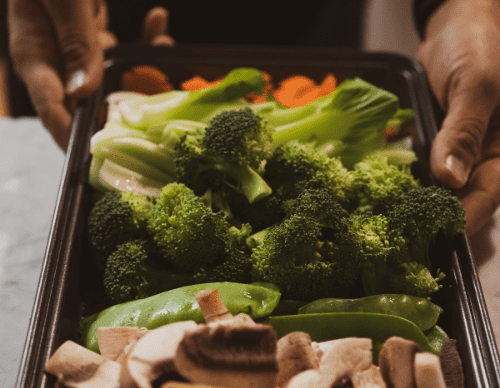
What Is The Amount Of Protein Needed By You
How much protein do you really need in your diet? How much extra will the average person benefit from adding supplements or shakes etc.? This may come as a surprise but most people actually eat more than they need…
Most adults only require around 0.36 grams per pound or 0.8g per kg – this goes for both vegans and meat-eaters alike! Excess protein doesn’t make a difference to how much muscle a person can develop, and it can actually damage your liver and kidneys over time.
There is only a certain amount of protein the body requires in order to function properly, so you definitely won’t ‘bulk up’ by eating more than your daily requirement! Therefore there’s no need to fear that you’ll be harming your muscles if you don’t eat meat or take vegan protein supplements.
What Is The Amount Of Protein Vegans Require Every Day
It is perfectly possible to get more than enough protein each day without meat or other animal products. Too much protein can be harmful, but it’s near impossible to get too little! Every vegan should aim for at least 60g of protein per day— this will ensure their B12 intake is adequate as well. The daily recommended dietary allowance (RDA) for men and women is 0.8 grams per kilogram of body weight—a level which should be suitable for nearly all adults regardless of whether they’re vegans or not. That means a 154-pound man would require around 54g of protein per day, while a 125-pound woman requires about 45g.
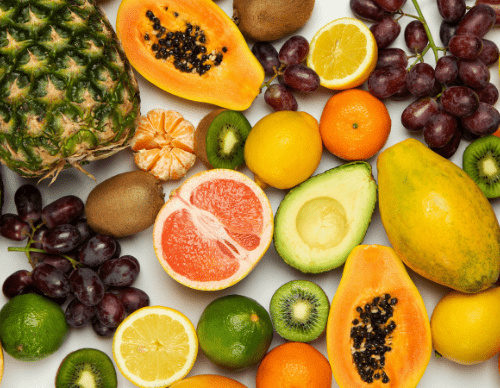
So, How Can Vegan Build Muscle
Here Are A Few Tips For Bodybuilding As A Vegan
-
Consume plenty of protein
One of the most important things for vegan bodybuilding is to eat plenty of protein. This doesn’t mean you have to start eating meat or dairy – there are plenty of plant-based sources of protein available. Some good choices include legumes, tofu, tempeh, seitan, nuts, and seeds.
-
Carefully plan your meals
It’s important to plan your meals carefully when you’re vegan and trying to build muscle. Eating the right combination of foods at the right time will help you maximize your results. Try to include a good mix of protein, carbs, and healthy fats in every meal.
-
Make use of protein powder
No matter what diet you’re following, it can be difficult to get enough protein from your food alone. It might also help to use a vegan-friendly whey or plant-based protein supplement to ensure you meet the FDA guidelines of consuming around 56 grams of protein per day. You can mix these with water or milk for an extra boost of calories and nutrients before or after your workout, which will help give you the strength and energy to get through each session.
-
Use supplements wisely
It’s important that you get all the vitamins, minerals, and nutrients that your body needs when you are working out hard on a vegan diet – supplementation can really make difference in this area. Iron and vitamin B12 are especially important for vegan athletes, as they can be difficult to get enough of from food alone. Look for a good quality multivitamin and mineral supplement to help make up for any shortfall.
Myth Or Fact: I Will Face Muscle Loss If I Go Vegan
There is a common misconception that vegans will lose muscle mass and end up thin and weak. This belief is generally in part due to the fact that most vegan diet plans are high-carbohydrate in nature, which will not provide sufficient protein for muscle growth or maintenance.
However, this does not have to be the case if you follow a carefully planned vegan diet with adequate protein intake from plant sources such as beans, nuts, soy, etc. In addition, exercising regularly will also help maintain your muscles even on a vegan diet.
In order to outpace any muscle loss that may occur from becoming a vegan, eating lean protein sources will help build new muscle tissue faster than it can be broken down. Maintaining a vegan diet will be much easier if you are also maintaining adequate protein intake.
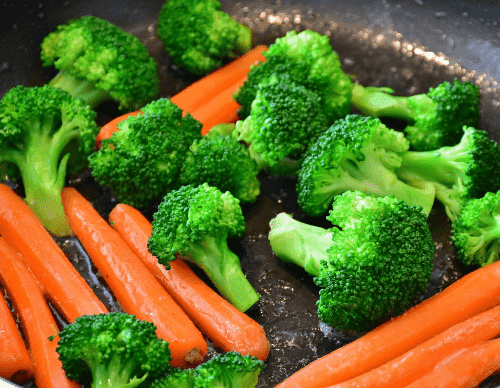
Myth Or Fact: One Cannot Build Muscle On A Plant-Based Diet
There is a common misconception that one cannot build muscle on a plant-based diet. This statement couldn’t be more incorrect.
It’s perfectly possible to build muscle on a plant-based diet. We’d like you to need to eat more calories than what you burn, and of course, we’ll encourage building lean, dense muscles. If building muscle is your sole goal instead of building strength then you may want to consider adding creatine into your routine.
Now that we’ve cleared up building muscle can be achieved on a plant-based diet let’s move forward with building lean muscle while maintaining low body fat percentage. It takes careful planning and probably some assistance from supplements for this kind of objective in veganism but it can definitely be done – in fact many people choose a plant-based diet in order to reduce their overall body fat levels rather than maximize their bulk or muscularity.
Some people are building muscle on a plant-based diet while maintaining low body fat without any sort of special supplements, but to make this something sustainable throughout your life it is best to do research and find out what works for you.
Which Fruits Have The Most Protein?
Protein is a macronutrient that provides energy and helps to build muscle. It’s found in many foods, especially fruit and vegetables. Most plants contain about 5% protein by weight, but some plants – like nuts and legumes – can have as much as 30%.
While meat is rich in protein, many fruits and vegetables also contain this important macronutrient. Protein is made up of amino acids which are used to provide energy and help build muscle. The amount of protein you need changes depending on your age, body weight, and activity levels. Although all fruit and vegetables contain some protein, the amount varies drastically.
Which fruit has the most protein? The fruit with the most protein is avocado with 5g per 100g. The fruit that has the least amount of protein is kumquat at 0.4g per 100g. This fruit belongs to the citrus family which also contains oranges, lemons, and limes. Other low-protein fruits from the citrus family include grapefruit, orange, and lime.
These fruits belong to several different plants including apple, pear, apricot, and peach. The plant that contains a higher amount of protein than all of these fruits put together is soybean at 56%.
